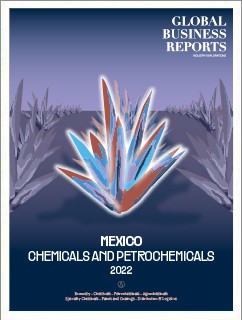
"I think it is very important for companies to have suppliers who do not just sell a product when they have it, but who can help them continue their operations with different materials, keeping prices as reasonable as possible."
RELATED PUBLICATION
Miguel Valdivia
COMMERCIAL DIRECTOR, TRADE CHEMICALS & PRODUCTS
How has Trade Chemicals & Products’ (TCP) product portfolio evolved from silicone products?
We founded this company 22 years ago focusing on the field of silicone emulsions and defoamers that have many applications in different industries. For example, silicone emulsions can be used for car care, or as release agents for rubber, or in baking bread, tortillas and candies. Silicone defoamers can also be used in textile processes, and in juices, pulps and tequila, and we have COFEPRIS permission for these products. 18 years ago, we started to manufacture all these products from silicone fluids; now we also make yarn lubricants for textiles and other products with silicone oil.
These products allow us to reach all kinds of industries, and as customers requested materials to complement their processes, it led us to trade other molecules such as sodium lauryl ether sulfate, pine oil, glycerin and carbomers. We also manufacture antibacterial gel and disinfectants.
What do you look for when establishing a distribution partnership with chemical companies?
Originally, TCP worked with small businesses looking for products that producers do not offer directly, as they have a minimum turnover or volume, so we act as an intermediary with the financial and storage capacity. In addition, TCP manufacture some products that our partners do not; that way we can offer a wider variety of products. We have practically all the raw materials for detergents, with 50% of our volume being raw materials for manufacturers of cleaning products.
Can you tell us about the technical advice services that TCP offers?
We have three chemical engineers with a lot of experience collaborating with us. One comes from Wacker, another comes from Clariant, and the other is a Doctor of Science. All have a lot of knowledge of all the products we handle and experience in different fields. Now that there is a shortage of many raw materials, we are supporting customers to replace products that are not available so they can continue with their processes. This service has also helped us increase sales. Recently, for example, we were in Culiacan, Sinaloa, with a customer who manufactures fertilizers and could not find citric acid in the market. We sent our specialist engineer who helped them replace this product.
What advice would you give to companies looking to mitigate challenges surrounding the lack of raw materials available?
Producers had saved money for years sourcing cheaper products from China, Korea and India, but today they are suffering their scarcity because they relied heavily on them. What I have seen work is having a business partner in Mexico like TCP that can supply local products and that has the contacts and the knowledge to replace a product that has run out or has gone up a lot in price. For example, in the case of antibacterial gel, when the carbomer and cane alcohol ran out, we had corn alcohol distilled, which has no bad aroma and replaced the traditional carbomer with hydroxyethyl cellulose. We made it possible for companies that needed to manufacture this product to do so. We were very successful and sold a lot of substitute material. This is a lot more common since the pandemic: more and more materials have problems of existence or price. I think it is very important for companies to have suppliers who do not just sell a product when they have it, but who can help them continue their operations with different materials, keeping prices as reasonable as possible.
Which markets do you see as having the most potential for growth in the coming years?
The agricultural sector has been in a continuous upward trend, and we expect this to continue. Of course, we will also continue growing TCP’s cleaning and disinfection product portfolio. In the face of climate change it is very important to follow the trend of first world countries towards biodegradable or environmentally-friendly products. Chemicals can often pollute, so new technologies and more refined or natural processes are necessary. Sometimes it is difficult to make the switch as these products are usually more expensive and less potent, but in the end, it is something we must do to conserve the planet and reverse the damage that has been done.











